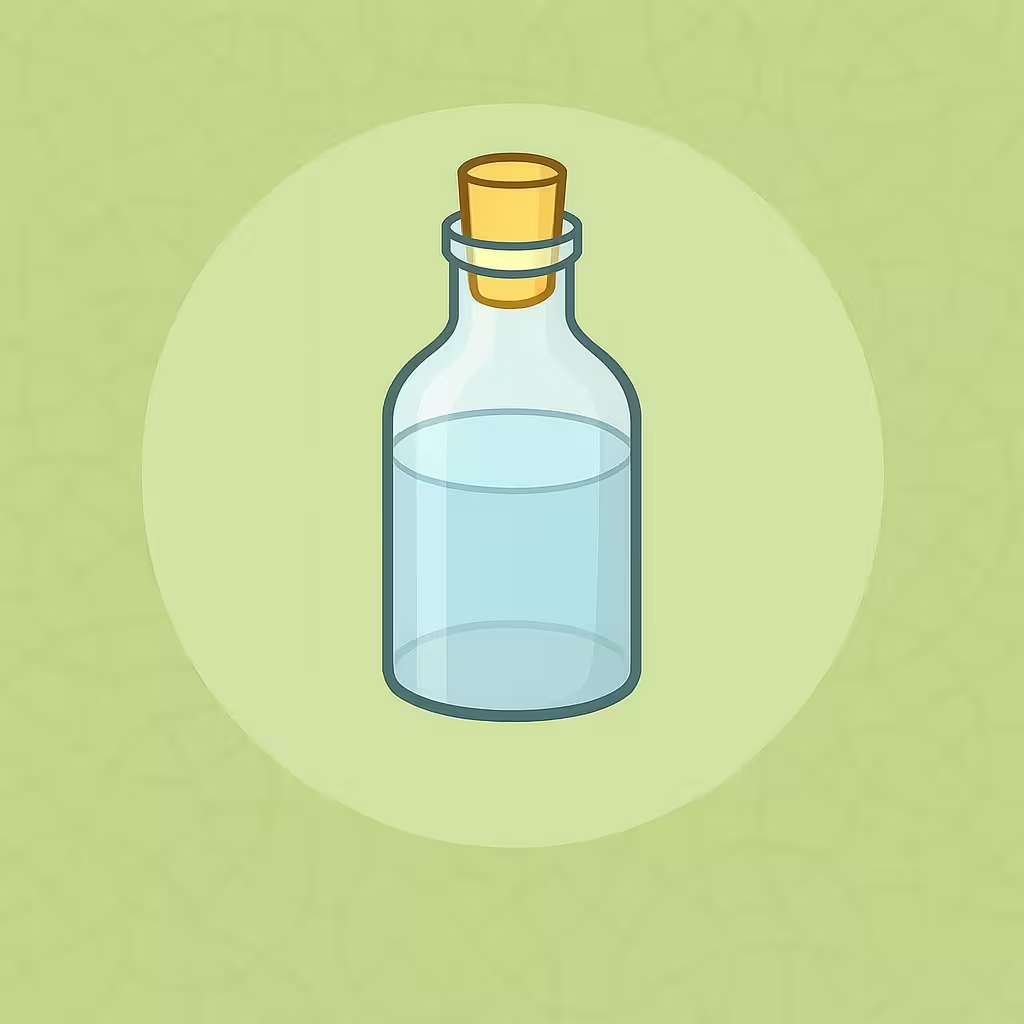Yes, white wine vinegar is halal according to the dominant Hanafi opinion.
Although this vinegar originates from wine, the wine undergoes a complete transformation into vinegar (a process known as istihala or chemical conversion), leaving no intoxicating element or alcohol.
Contemporary Hanafi scholars have clarified that earlier rulings deeming it haram (forbidden) were context-specific and have since been superseded by evidence of its permissibility.
Below, we explore why the Hanafi school considers white wine vinegar halal, how vinegar differs from its wine origin, and what other Islamic schools of thought say about it.
What is White Wine Vinegar?
White wine vinegar is made by fermenting white wine into tangy vinegar.
White wine vinegar is exactly what it sounds like: vinegar made by fermenting white wine. During the fermentation process, beneficial bacteria convert the wine’s ethanol (alcohol) into acetic acid – the substance that gives vinegar its sour tang.
The result is a liquid that retains some mild flavor notes of the original wine but contains virtually no alcohol and has no intoxicating effect.
In other words, the wine has chemically changed into a new, pure substance (vinegar) that is no longer considered an alcoholic beverage.
Hanafi Fiqh: Is White Wine Vinegar Halal?
In Hanafi jurisprudence (fiqh), white wine vinegar is considered halal (permissible) despite its origin as wine.
Historically, some early narrations and juristic opinions suggested that vinegar derived from wine might be forbidden due to its alcoholic origin. However, leading Hanafi scholars explain that those indications of prohibition were temporary measures or isolated opinions that do not reflect the final ruling.
In fact, classical Hanafi texts like al-Hidaya by the scholar Burhan al-Din al-Marghinani explicitly state that if wine turns into vinegar – whether on its own or through deliberate intervention – it becomes halal and even pure (ṭāhir).
Thus, the Hanafi school has long recognized that once wine has become vinegar, it is no longer treated as wine at all, but as a halal condiment.
Early Rulings: Why White Wine Vinegar Was Once Seen as Haram
In the early period of Islam, there were hadith (Prophetic narrations) that discouraged deliberately turning wine into vinegar.
For example, when the Prophet Muhammad ﷺ was asked about using leftover wine to make vinegar, he responded, “No, (it is prohibited)" (Tirmidhi).
This strict stance came at a time when alcohol had just been prohibited and Muslims needed to distance themselves from anything connected to wine. The wisdom behind this initial prohibition was to firmly ingrain the understanding that wine itself was impure and forbidden in people’s hearts.
Accordingly, some jurists in history took a very cautious approach and deemed any wine-derived product, like wine vinegar, as haram to avoid any association with intoxicants.
Modern Hanafi Analysis: Transformation (Istihala) Makes It Halal
Over time, as the Muslim community’s understanding deepened, scholars revisited the issue with careful analysis.
The Hanafi madhhab ultimately affirmed that a complete transformation (istihāla) of a substance changes its legal ruling: when wine turns into vinegar, it undergoes a fundamental change that removes its impure, intoxicating nature.
Modern Hanafi fatwas clarify that the earlier strict rulings were effectively abrogated (replaced) by clear evidences establishing the permission of wine vinegar. Notably, vinegar was even praised by the Prophet ﷺ in a narration: “The best of condiments is vinegar” (Sahih Muslim).
Therefore, contemporary Hanafi authorities around the world agree that white wine vinegar is halal and pure, since no trace of wine’s alcohol or intoxicating properties remain in the vinegar.
FAQs
What is the process of Istihala?
Istihala is the process of a substance undergoing a complete chemical transformation, such as when wine ferments and becomes vinegar, resulting in a new substance with different properties and rulings.
What is istihalah in Islam?
Istihalah in Islam refers to the legal principle that when a substance undergoes a complete transformation and its original nature changes, its religious ruling also changes accordingly.
Is White Wine Vinegar is halal?
Yes, white wine vinegar is halal according to the dominant Hanafi opinion because the wine is completely transformed into vinegar, removing any intoxicating elements.
Is white wine vinegar classed as alcohol?
No, white wine vinegar is not classed as alcohol because the fermentation process converts the alcohol into acetic acid, leaving no intoxicating effect or alcohol content in the final product
Does white wine vinegar contain alcohol?
No, white wine vinegar does not contain alcohol after the fermentation process, as the alcohol is completely transformed into acetic acid.
Which vinegars are not halal?
Vinegars that have not undergone complete transformation from alcohol, or that still contain intoxicating elements, are not considered halal.
Is wine halal in Islam?
No, wine is not halal in Islam because it is an intoxicant and contains alcohol.
Is 0.5% alcohol halal?
No, products containing 0.5% alcohol are not considered halal if the alcohol remains and can intoxicate, but vinegar is permissible because the alcohol is fully transformed and removed.
Is vinegar permissible in Islam?
Yes, vinegar is permissible in Islam, especially when it is produced through complete transformation from alcohol, as in the case of white wine vinegar.
Which vinegar is halal Hanafi?
According to the Hanafi school, any vinegar - including white wine vinegar - that has undergone complete transformation from alcohol to acetic acid is halal.
Which vinegar did the prophet use?
The Prophet Muhammad ﷺ praised vinegar in general as a condiment, as mentioned in Sahih Muslim, but the specific type is not detailed.
Is white wine vinegar classed as alcohol?
No, white wine vinegar is not classed as alcohol because the fermentation process removes all intoxicating elements and alcohol content.


















.avif)

Lorem ipsum dolor sit amet, consectetur adipiscing elit. Suspendisse varius enim in eros elementum tristique. Duis cursus, mi quis viverra ornare, eros dolor interdum nulla, ut commodo diam libero vitae erat. Aenean faucibus nibh et justo cursus id rutrum lorem imperdiet. Nunc ut sem vitae risus tristique posuere.
Lorem ipsum dolor sit amet, consectetur adipiscing elit. Suspendisse varius enim in eros elementum tristique. Duis cursus, mi quis viverra ornare, eros dolor interdum nulla, ut commodo diam libero vitae erat. Aenean faucibus nibh et justo cursus id rutrum lorem imperdiet. Nunc ut sem vitae risus tristique posuere.